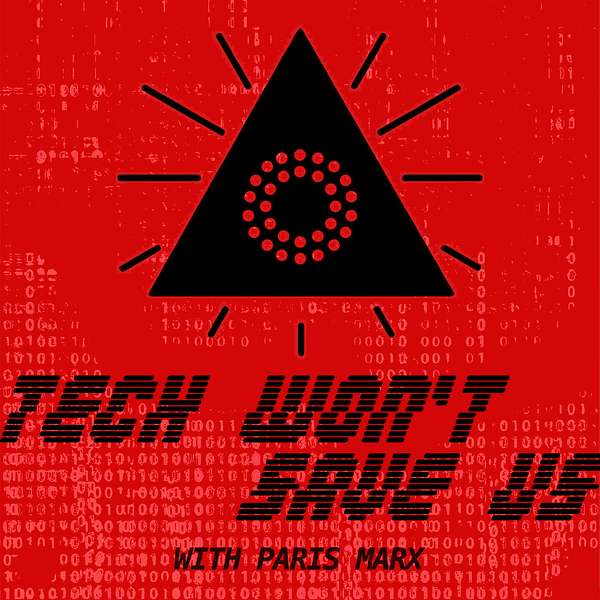
Tech Won't Save Us
Silicon Valley wants to shape our future, but why should we let it? Every Thursday, Paris Marx is joined by a new guest to critically examine the tech industry, its big promises, and the people behind them. Tech Won’t Save Us challenges the notion that tech alone can drive our world forward by showing that separating tech from politics has consequences for us all, especially the most vulnerable. It’s not your usual tech podcast.
Tech Won't Save Us
Bitcoin is a Right-Wing Technology w/ David Golumbia
Paris Marx is joined by David Golumbia to discuss the ideology of cyberlibertarianism, the right-wing politics of cryptocurrencies and blockchains, and why the left shouldn’t embrace them.
David Golumbia is an associate professor at Virginia Commonwealth University and the author of “The Politics of Bitcoin: Software as Right-Wing Extremism.” He’s also writing a new book called “Cyberlibertarianism” from Minnesota University Press. Follow David on Twitter as @dgolumbia.
🚨 T-shirts are now available!
Tech Won’t Save Us offers a critical perspective on tech, its worldview, and wider society with the goal of inspiring people to demand better tech and a better world. Follow the podcast (@techwontsaveus) and host Paris Marx (@parismarx) on Twitter, and support the show on Patreon.
Find out more about Harbinger Media Network at harbingermedianetwork.com.
Also mentioned in this episode:
- David wrote about cyberlibertarianism for Jacobin Magazine.
- Keith Spencer interviewed David about his book for Salon in 2018.
- Elon Musk’s tweets affect cryptocurrency prices, while China is cracking down on crypto mining.
- Marc Andreessen says “crypto is a right wing idea” in an interview with Noah Smith.
- El Salvador’s right-wing authoritarian president made Bitcoin a form of legal tender.
- Tether misled people about how much USD was backing its stablecoin.
- About 20% of Bitcoin — worth billions of dollars — is lost and recoverable.
- Other resources: Langdon Winner’s “Do Artifacts Have Politics?” and “Cyberlibertarian Myths and the Prospects for Community”; Richard Barbrook and Andy Cameron’s “The Californian Ideology”; Fred Turner’s “From Counterculture to Cyberculture”; Paulina Borsook’s “Cyberselfish” (article); and John Perry Barlow’s “A Declaration of the Independence of Cyberspace.”





